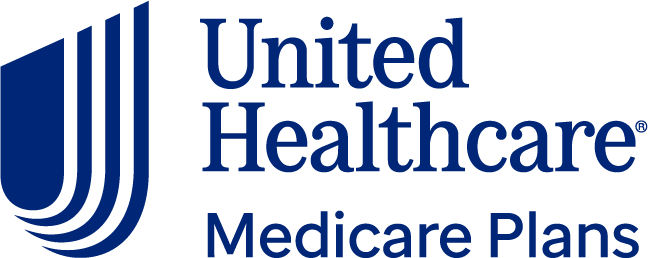How Much Does Medicare Cost in 2026?
Original Medicare (Parts A and B) costs $202.90 per month in 2026 for most people. But there are other costs to consider.

Many, or all, of the products featured on this page are from our advertising partners who compensate us when you take certain actions on our website or click to take an action on their website. However, this does not influence our evaluations. Our opinions are our own. Here is a list of our partners and here's how we make money.
Medicare has four parts — Part A, Part B, Part C and Part D — that each come with different monthly fees and out-of-pocket costs. These include premiums, deductibles, coinsurance and income-related monthly adjustment amounts (IRMAA). The cost of Medicare can change every year.
Here’s how much Medicare costs in 2026.
What is the average monthly cost for Medicare in 2026?
In general, you’ll pay a monthly premium for each part of Medicare, depending on which parts you’re enrolled in:
Part of Medicare | Monthly cost |
|---|---|
Part A (hospital insurance) | Typically $0. |
Part B (medical insurance) | Typically $202.90 in 2026. |
Part C (Medicare Advantage) | $14, on average, in 2026. |
Part D (prescription drugs) | $34.50, on average, in 2026. |
Medigap | Varies by plan. |
Income-related monthly adjustment amount (IRMAA)
If your income is above a certain level, you may have to pay a higher premium for Medicare Parts B and D. This is known as the income-related monthly adjustment amount (IRMAA). The thresholds for IRMAA in 2026 are based on your modified adjusted gross income in 2024:
Single filers: $109,000 in 2026.
Joint filers: $218,000 in 2026.
How much does Medicare Part A cost?
Medicare Part A covers inpatient care in hospitals and skilled nursing facilities, hospice care and some home health care. Here’s what you’ll pay for Medicare Part A:
Premium: Free for most. (It’s free if you or your spouse worked and paid Medicare taxes for 10 years.)
Premium if it’s not free: Up to $565 per month in 2026.
Deductible: $1,736 in 2026 for each benefit period.
Coinsurance for inpatient stay: $0 for days 1 to 60 after you pay your deductible, then at least $434 per day in 2026 (costs go up after day 90).
Coinsurance for a skilled nursing facility stay: $0 for days 1 to 20 after you pay your deductible, then at least $217 per day in 2026.
Maximum out-of-pocket costs: There is no limit unless you have a Medigap policy covering some of your costs.
Note: If you have a Medigap policy, it may cover many of these costs listed above.
A benefit period starts the day you’re admitted for an inpatient hospital stay or skilled nursing facility care. It ends when you haven’t received inpatient hospital or skilled nursing care for 60 days in a row. If you’re admitted after that, you’ve started a new benefit period and must pay the deductible again. (But if you have a Medigap plan, it often covers your Part A deductible.)
Shopping for Medicare plans? We have you covered.

4.1
CMS Star Rating
from UnitedHealthcare

3.61
CMS Star Rating
How much does Medicare Part B cost?
Medicare Part B covers outpatient care, such as routine screenings and doctor’s office visits. It also covers durable medical equipment. Here’s what you’ll pay for Medicare Part B:
Premium: $202.90 per month in 2026, although you could pay more depending on your income.
Higher-income beneficiaries: An additional $81.20 to $487 in 2026 if your income is above IRMAA thresholds.
Deductible: $283 in 2026.
Coinsurance: Usually 20% of the cost of Medicare-approved services.
Maximum out-of-pocket costs: No limit unless you have a Medigap policy.
Note: If you have a Medigap policy, it may cover your coinsurance.
How much does Medicare Part C (Medicare Advantage) cost?
Medicare Advantage is a bundled alternative to Original Medicare. It includes the benefits of Part A, Part B and usually Part D. Most plans come with some dental or vision care coverage. They're sold by private health insurance companies, and premiums vary. Here’s what you’ll pay for Medicare Advantage:
Average monthly premium: $14 per month in 2026. (But many plans have a $0 premium.)
Part B premium: You still must pay this, but some Medicare Advantage plans pay all or part of this for you.
Deductibles, coinsurance and copays: Costs vary by plan. Check the fine print to understand what you’ll pay for medical services.
Maximum out-of-pocket costs: Plans can set this limit as high as $9,250 in 2026.
How much does Medicare Part D cost?
Medicare Part D is optional prescription drug coverage. It’s sold by private health insurance companies, so premiums vary by policy. Here’s what you’ll pay for Medicare Part D:
Average monthly premium: $34.50 in 2026. (But some plans have a $0 premium.)
Higher-income beneficiaries: You’ll pay an additional $14.50 to $91 per month in 2026 if your income is above IRMAA thresholds.
Drug plan price range: $0 to $238.60 in 2026.
Deductible: Not all plans have one, and it can’t be higher than $615 in 2026.
Copays and coinsurance: Check your prescription drugs to see what you’ll pay for them in the plan.
Maximum out-of-pocket costs: $2,100 in 2026.
Note: Most Medicare Advantage plans include Part D benefits. If you have one of these plans, you don’t have to pay a separate Part D premium.
How much does Medigap cost?
If you opt for Original Medicare instead of Medicare Advantage, you can get Medigap, or Medicare Supplement Insurance. These plans offer extra coverage for your out-of-pocket costs on Medicare. They may also come with some health coverage if you travel internationally. Here’s what you’ll pay for Medigap:
Premium: Varies by plan and location.
Best time to buy: During the six-month window that starts the first month you have Medicare Part B (and you’re 65 or older). This is your Medigap open enrollment period. During this time, Medigap companies can’t charge you more because of your health status. After that, companies may raise the price or not offer you a plan, depending on your health situation.
Note: You can’t buy Medigap if you have Medicare Advantage.
Although premiums vary, here’s an example of Medigap costs for a 65-year-old nonsmoker in Chicago, before any discounts:
Medigap plan | Monthly premium |
|---|---|
Starts at $115. | |
Starts at $171. | |
Starts at $193. | |
Starts at $185. | |
Starts at $147. | |
Plan F - high deductible | Starts at $49. |
Starts at $122. | |
Plan G - high deductible | Starts at $43. |
Starts at $76. | |
Starts at $121. | |
Starts at $101. | |
Starts at $91. |
Make sure you compare Medicare Supplement plan types to find the coverage that’s right for you.
ON THIS PAGE
Compare Medigap plans
ON THIS PAGE







